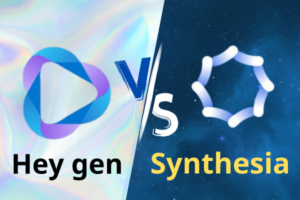“My Journey to Life-Changing Journaling“
At 20, I embarked on a humanitarian church mission in Pennsylvania, dedicating over 80 hours a week to this fulfilling yet demanding role. During this time, I encountered significant emotional challenges.

A Turning Point Through Journaling
My perspective shifted drastically after discovering an article about the transformative power of journaling. The author, who had maintained hundreds of journals for 30 years, shared insights on its profound impact on her life. This revelation struck me deeply, making me realize the extensive benefits journaling could have in all areas of my life.
The Ripple Effect of a Single Article
After reading this article, I felt inspired to start my journaling journey. I wrote in my journal, “I just read this article. I believe this is going to be a life-changing thing for me. From this point on, I will journal every single day.” That decision, made 15 years ago, led me to journal nearly every day since.
The Impact of Consistent Journaling
My dedication to journaling has been instrumental in earning a PhD and publishing six books. It’s been the single most transformative practice in my life.
Journaling: More Than Just Writing
My approach to journaling has evolved over 15 years, and I’ve learned 15 vital lessons that can revolutionize your journaling experience.
In this article, you will discover:
- Techniques to gain deeper insights through journaling.
- Methods to reshape your perception of yourself, others, and the world for emotional healing.
- Strategies to enhance your skills in writing, planning, thinking, and strategizing.
- Ways to elevate your thinking for financial growth.
Let’s embark on this transformative journey together.
Table of Contents
#1 – Embrace Your Unique Journaling Style
Forget about finding the “right” or “wrong” way to journal. Many hesitate to start journaling because they’re worried about doing it correctly. However, journaling is a highly personal and subjective practice with countless approaches.
My method is simple: grab a plain piece of paper and begin writing. Each session varies. While I do have core models, frameworks, and questions I often use (which I’ll share in this article), there’s no fixed right or wrong way to journal.
Think of your journal as a “private tool-kit.” It’s your personal space for jotting down thoughts, ideas, goals, and challenges.
The key is to let go of the quest for the perfect method. Just start writing daily and let your unique journaling style evolve naturally.
#2 – Journaling: A Conversation with Yourself
When I started journaling during my mission, I wrote as if others would read my entries. This mindset is common but differs significantly from the journaling style I encourage now.
The approach I advocate is deeply therapeutic and life-changing. From now on, journal solely for yourself. This shift makes your journaling more effective, powerful, and enjoyable. Writing for your eyes only encourages honesty and flexibility in your entries.
Interestingly, psychologists have explored the concept of “writing and burning,” where people write their thoughts and then intentionally destroy them. While I personally keep my journals, this practice highlights the primary benefit of journaling: the act itself, not the potential for future review.
Your journaling’s value lies in the present, not in a future moment. An older version of you, or even your descendants, might one day read your words, but don’t let that influence your writing now.
Your journal is your private space. Feel free to express anything and everything with complete honesty. Ironically, your most genuine entries are likely the ones that future generations will find most fascinating and valuable.
#3 – The Present Focus of Journaling
Journaling is about the present, not the past. I seldom revisit my old journals, as the true value of journaling lies in its immediate impact – aiding in healing, emotional regulation, thinking, planning, strategizing, and creating.
Your current journal is the most valuable tool for these purposes. The benefits of previous journals were realized in the moments you used them. Re-reading them isn’t necessary for their value to be acknowledged. While you can review past journals, remember, it’s not the core purpose of journaling, nor is it an obligation. Regularly revisiting old journals can be time-consuming and emotionally taxing.
However, I do revisit one specific page. At the beginning of each journal, I answer these 5 key questions:
- Where am I now? – This is about your current life snapshot. What projects are you working on? What’s happening in your family? What challenges are you facing?
- What are my wins in the last 90 days? – Document both personal and professional achievements from the past three months.
- What are my key wins for the next 30–90 days? – Outline what would make the upcoming month or three truly outstanding for you.
- What are my goals for the next 12 months? – Identify your top three priorities for the year, as having more than three means having none.
- What are my goals for the next 3 years? – Envision and strategize for a significant, yet attainable, future within this timeframe.
These questions and their answers are kept at the front of my journal for easy reference. Beyond this, I spend little time revisiting old entries.
The primary goal of journaling is to transform your thinking and reshape how you view yourself, others, the world, and perhaps your spiritual beliefs. Focus on the journal you’re creating right now.
#4 – Nightly Journaling: A 5-Minute Ritual
Thomas Edison once said, “Never go to sleep without a request to your subconscious.” Many people delay sleep, which can lead to less and poorer quality rest, impacting the following day. Instead of succumbing to pre-sleep distractions, why not prepare for rest with a short journaling session?
Devote just 5 minutes each night to journaling. Begin by noting three things you’re grateful for. This simple practice can significantly improve your sleep quality.
Each day offers a new perspective. How you choose to end your day can influence how you experience and remember it. Use journaling to frame your day positively and constructively.
I often write in response to this question: “How am I different from who I was yesterday?” This reflection helps me recognize my growth and changes, even if they’re subtle.
Here are some variations to prompt your nightly journaling:
- What were the key experiences of my day?
- What did I learn today?
- How did I witness the hand of God or serendipity today?
- In what ways have I grown from today’s experiences?
- How has my understanding or knowledge expanded since yesterday?
Answering these questions nightly will help you uncover, analyze, and reflect on your day’s events. You’ll realize more happened than you initially thought. It will also help you to remember these experiences more vividly.
By viewing each day through this lens, your expectations and visions for success tomorrow will naturally elevate.
#5 – Morning Journaling: A 5-Minute Start to Your Day
Before immersing yourself in the day’s inputs like texts, emails, social media, and other notifications, take a moment to journal. These few minutes of morning journaling are crucial for giving your mind the space to form new insights and connections.
Journal before any digital interaction. In the morning, your brain is at its most creative, fresh from a night’s subconscious processing. While you sleep, your brain not only consolidates new memories but also re-evaluates and sometimes discards old beliefs and ideas. This makes the morning an ideal time for reflection and capturing fresh ideas.
In just 5 minutes each morning, leverage the growth and processing that occurred overnight. Write about what you’re grateful for, outline your goals for the day, and allow yourself to be open to new insights.
I’ve found that many of my most significant revelations and ideas emerge during these morning sessions, in a quiet space, free from distractions, where my thoughts can crystallize clearly on paper.
Embrace this time to connect with your inner self; it’s often when life-changing insights surface.
#6 – Create a Special Journaling Environment
The influence of your environment on behavior is well-documented. In my first book, “Willpower Doesn’t Work,” I delve deeply into this concept. To enhance your journaling, it’s essential to create a “sacred space” specifically for this activity.
This space doesn’t need to be elaborate. For instance, I find solace in my car – a simple yet effective spot where I can journal undisturbed. Find a location where you can journal without distractions. This could be a quiet corner in your home, a park bench, or even a secluded spot in a library.
By journaling in a dedicated space, you elevate the importance of this practice in your mind. This ritualization turns journaling into an experience you eagerly anticipate each day.
#7 – Center Yourself with Meditation or Prayer Before Journaling
Prior to my journaling sessions, I take a moment to pray. This practice is about seeking inspiration and guidance, hoping to gain insights and new perspectives. It’s a time to request awareness about things I might have overlooked and to focus my ideas, energy, intentions, and thoughts.
Regardless of your personal beliefs, engaging in a calming practice like meditation or prayer can significantly enhance your journaling experience. This preparatory step helps slow down your thoughts, placing you in an ideal state of mind for introspective writing. For me, prayer opens a gateway to inspiration and allows ideas to flow freely. Consider incorporating this into your routine to see how it can amplify the benefits of your journaling.
#8 – Cultivate Gratitude in Your Journaling Practice
Gratitude is often considered the foundation of all virtues. It can foster feelings of abundance, excitement, and deeper insights. When journaling, it’s beneficial to enter a state of gratitude. This mindset can be achieved through practices like prayer and meditation before you start writing, but it’s important to maintain and amplify this grateful state during the journaling process itself.
One effective method is to write down things you’re thankful for. Reflect on and feel gratitude for your recent progress, whether it’s over the past weeks or just a few days. Acknowledge and appreciate the remarkable achievements you’ve made in your life.
Also, extend this gratitude towards your goals and the person you aspire to be. By doing so, you create a positive, forward-looking perspective that enriches your journaling experience.
#9 – Embrace the Past and Future as Work in Progress
Understanding that both the past and the future are malleable drafts is a pivotal insight. In your journal, you have the power to reinterpret and reshape your past. It’s crucial to recognize that your past is a reflection of who you are now, not the other way around. Your current self dictates the meaning of your past experiences, viewing them as drafts that can be continuously revised and reinterpreted.
As an author, I’ve learned the value of multiple drafts for gaining clarity and deeper understanding. Treat your past in the same way – as a draft that isn’t set in stone. Similarly, your future is also a draft, subject to change and refinement each day. While it’s important to have goals and visions, remember they don’t need to be rigid.
Your perception of the past may evolve in just a few weeks, and your future self will likely view your history differently than you do now. Use your journal to gradually sculpt your understanding of who your future self is. Your vision, goals, and plans might shift slightly over time, even if the overarching vision remains constant. Regularly updating your goals in your journal is a helpful practice.
View your past and present as drafts in your journal. This perspective allows you to be fully present and relieves the pressure of having everything figured out immediately. Each morning, commit to just the next step in your journey. Your journal becomes a space where you can refine and improve these drafts over time.
#10 – Recognize You Are Distinct from Your Past Self
When journaling, it’s essential to reflect on how you differ from your past self. This ties back to the nightly question, “In what ways am I different than who I was the day before?” and to the practice of documenting your achievements over the past 90 days at the start of each journal.
Understand that the person you were 10 days ago, or even 10 years ago, is not who you are today. Recognizing and embracing your evolution and changes is key. By doing so, you enable your brain to adapt and evolve more rapidly.
Offer empathy towards your past self. There’s no benefit in harboring resentment for past mistakes or decisions. You now possess knowledge and resources that your past self did not have. Approach your former self with compassion, love, and understanding.
Regularly measuring and acknowledging your growth reinforces your brain’s belief in your ability to continue evolving. This practice cultivates a stronger belief in your potential and capabilities, as you see the tangible ways in which you’ve changed and grown over time.
#11 – Understand Your Present Self is Not Your Final Self
Dr. Daniel Gilbert astutely observed, “The person you are right now is as transient, as fleeting and as temporary as all the people you’ve ever been.” This insight is key in distinguishing between a fixed and a growth mindset. Individuals with a fixed mindset often cling too tightly to their current identity, saying, “this is who I am,” and resisting change.
In contrast, those with a growth mindset embrace change and are more focused on improvement rather than maintaining a rigid sense of self. They are open to challenging their own assumptions and beliefs, as emphasized by Brene Brown’s philosophy of prioritizing ‘getting it right’ over ‘being right.’
This concept is exemplified in the story of Andre Norman from my book, “Personality Isn’t Permanent.” Initially, in prison, Andre simply aimed to get out. However, he soon realized that mere freedom wasn’t enough; he aspired to be successful. His reasoning led him to conclude that education was the path to success, setting his sights on Harvard University. This goal transformed his life, providing a clear direction for his future. Today, Andre’s journey has led him to a fellowship at Harvard.
Your current state does not define your future. Your future self will be more informed and less ignorant than you are today. Journaling daily is a powerful tool in this process. It helps you avoid being overly defined by your current circumstances, allowing for continuous adaptation and growth in your ideas, goals, mindsets, and approaches. You are not limited by a single event or situation; instead, you are in a state of ongoing evolution.
#12 – Embrace Your Ever-Evolving Future Self
Albert Einstein once said, “Imagination is more important than knowledge.” This holds true when considering your future self. Many people mistakenly project their current selves into the future, failing to realize the potential for significant change and growth.
Understanding that your future self will be different from who you are today is crucial for healthy personal development. Both the past and the future serve as tools to enhance your effectiveness in the present. Your journal becomes a bridge to your future self, where you can establish gratitude, connection, and start to take actions influenced by the person you aspire to be.
Reflecting on the idea of life being a series of “drafts,” use your journal to shape and frame your future. The clearer and more connected you are with your future self, the better your decision-making will be in the present. Embracing this perspective allows you to make choices that align with the future you’re actively creating.
#13 – Time as a Trio of Tools: Past, Present, Future
Dan Sullivan wisely stated, “The only way to make your present better is by making your future bigger.” Time is not just a linear sequence; it’s a simultaneous existence of past, present, and future. In your journal, these timeframes are tools. Ask yourself: Are my reflections on the past, present, and future helping and healing me? The application of these tools, as explored in points #10-#12, is entirely in your hands.
#14 – Journaling for Psychological and Emotional Healing
Your journal is more than just a notebook; it’s a safe haven for emotional healing and building psychological flexibility. By using the past, present, and future as tools and continuously reframing your experiences, you transform through journaling. This practice grants you the freedom to make better decisions, feel more inspired, and approach each day with excitement. Embracing emotional flexibility in your journaling leads to resilience and the ability to thrive in various circumstances.
#15 – Strategizing and Decision-Making in Your Journal
Consider your journal as a strategic tool for making important life decisions. In my experience, it’s been instrumental in planning my career, forging connections, and fostering creative insights. Journaling enhances objectivity, allowing for clearer idea mapping and increased self-awareness. With a new perspective on your past, present, and future, you’re equipped to make significant, bold strides towards your desired future.
In your journal, dare to write down your grandest goals and dreams. Remember, this is for your eyes only. This is where you can be vulnerably honest and imaginative about your ambitions.
Conclusion – Embracing Change Through Journaling
With your journal, you have the power to:
- Attract money, people, circumstances, and ideas.
- Deepen your spiritual connection.
- Become psychologically adaptable and emotionally free.
- Reframe life’s challenges and traumas.
- Transform your life entirely.
Armed with these insights, you’re now equipped to assist others and yourself in evolving into your future selves.
How will you use your journal to shape your life?
Have a beautiful day.
For more insights like these, subscribe to my newsletter, where I share curated content to help you elevate your skills.
Subscribe here: Top AI Tools Review
Have a fantastic day ahead!




